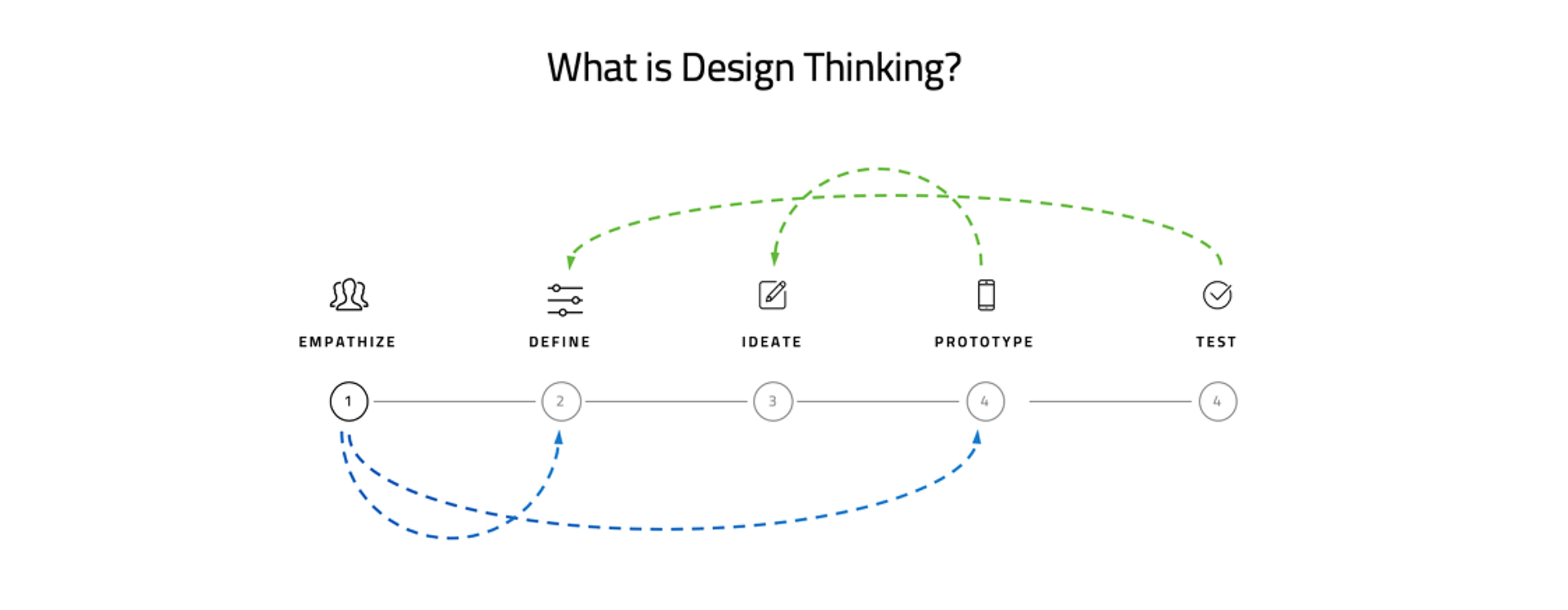It is expected that over the coming months, businesses will need to operate within tight budgets as revenue streams contract across different industries. This is the time when they will need to ensure that all the investments they are making in digital enablement or digital transformation, are made wisely.
Experience-driven businesses have been shown to benefit from a greater return-on-investment, improved effectiveness and increased efficiencies when employing a user-centered perspective (UX).
Whether product or service, the experience of using a product goes well beyond the user interaction itself, and extends to product advertising, to the design of its website, to product functionality and even the after sales experience. Establishing an effective UX research process at the beginning of the product development is the first step to creating a satisfying user experience. By using UX research businesses have the base knowledge to design the product their users need.
Research is crucial for industries like financial services where understanding customer behavior to develop products and services is necessary to provide business growth. When developing a new product or service, businesses need to be informed on all of the relevant bits of information about their audience, and their possible interactions and requirements of and with the new product. UX (user experience) research helps businesses understand their customers better by eliminating assumptions and identifying their specific needs and goals.
When planning a UX research for a new product/service, businesses need to be open to expanding their research hypothesis. Rather than relying on a narrow research focus, a larger study may find issues or opportunities previously unrecognized and may include some of the processes may even need to be eliminated as a result of the improvement efforts. This would also prevent any potential extra improvement costs along the way.
What is UX Research?
UX research is crucial because it eliminates assumptions during the design process. It provides valuable input to help organizations make their product design decisions while also saving them time and resources. The UX research contributes to the design process with end-user in mind and it tells the designers who their actual users are and what are their needs. It provides context and insight by involving the right approach taken at the right time in the development of a new product or service.
User experience research is the analytical investigation of users, their behaviors, and their motivations, to be able to provide insight into the process of designing a new product or service. By using UX research, organizations are able to build a roadmap strategy for a new product or service more efficiently. The aim of user research is to find solutions to users’ problems by understanding their goals, while considering the key business objectives.
This type of analysis can be used in both ideation and validation stages of a design process and since it helps to validate any assumptions beforehand, it can help to prevent any potential delivery cost. With UX research, a wide range of techniques, methodologies, and tools are used to reach conclusions and identify problems that lead to valuable information that can be beneficial to the design process. Both qualitative and quantitative methods are used to carry out this type of research.
For example, qualitative data can be gathered through interviews, focus groups, and field studies while quantitative data involves industry analytics. The next step of this systematic approach after collecting the data would be to include it in the design process of a new product or service.
Why is UX Research so important?
In order to mitigate the risk of losing users to competitors due to a poor experience (online, in-person, performance etc.), organizations need to consider the UX (user experience) strategy for all of their products and services. Understanding the UX through research will improve all design aspects of a product or service.
Starting UX research before the actual design process is initiated, is crucial because it eliminates assumptions during the design process. It provides valuable input to help organizations make their product design decisions while also saving them time and resources. UX research contributes to the design process with the end-user in mind and it informs the designers who exactly their users are and about their particular needs. It also provides context and insight by involving the right approach taken at the right time in the development of a new product or service.
UX research prevents organizations from designing the wrong product because it identifies the user’s needs and requirements of a new product or service. Also, by having data to provide further user behavior insight, organizations can create better products while also saving resources. By using UX research, businesses have also the opportunity to align their business goals with their users’ goals to achieve optimum results. UX research enables businesses to define the value proposition of their project from the data gathered from the users which will better optimize the design process.
costs down the line. UX research might take time to plan and execute but not conducting it may cause the creation of a product or service that doesn’t solve the users’ problems or that is not user-friendly.
About Veriday
Since 2005, we’ve used innovative technology solutions to help solve marketing and consumer engagement issues for numerous brands including Google, Canadian Tire and RBC Financial to name a few. Since our inception, we’ve translated those early successes into helping many of the largest corporations in both Canada and the US, drive usage and deliver user-centric experiences to their employees and clients.
We’ve become a leader in transformative digital experiences and continue to take a user-first approach to ensuring that the end customer is at the center of our planning, across all channels and interactions.
Veriday’s diverse experience, products and professional services have allowed us to effectively tailor enterprise solutions for partners operating across industries including healthcare, financial services, government, insurance and engineering, providing us with critical insights and deep customer relationships throughout North America.
Services Include:
• Custom Web & Portal Development
• User Experience Design
• Digital Marketing
• Digital Transformation
• Application Support
• Technology Integration
• Management Consulting (Payments, RPA)
• Liferay Consulting & Development Services
References :



